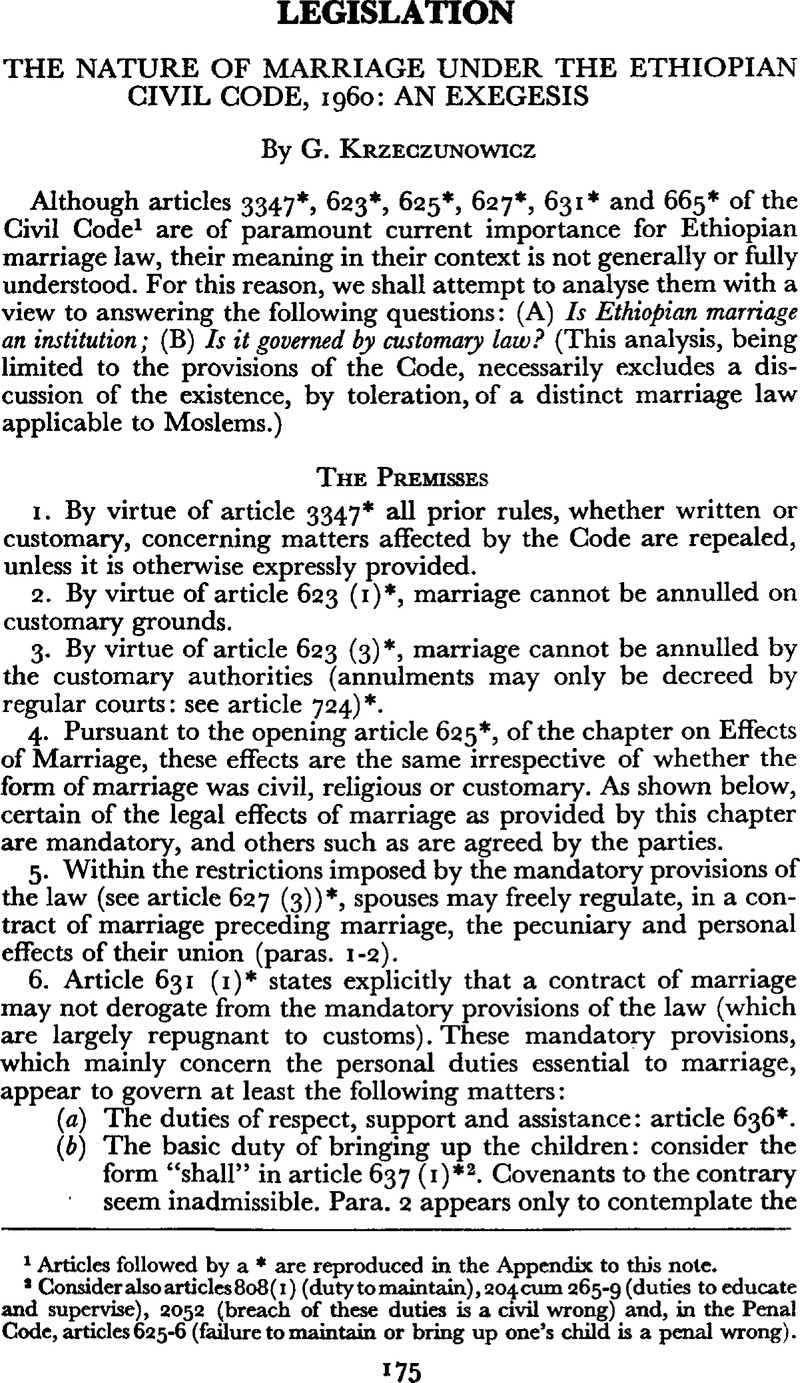No CrossRef data available.
Published online by Cambridge University Press: 28 July 2009

page 175 note 1 Articles followed by a * are reproduced in the Appendix to this note.
page 175 note 2 Consider also articles808(I) (duty to maintain), 204 cum 265–9 (duties to educate and supervise), 2052 (breach of these duties is a civil wrong) and, in the Penal Code, articles 625–6 (failure to maintain or bring up one's child is a penal wrong).
page 176 note 1 Cf. R. David, Le droit de la famille dans le code civil éthiopien (Milano, Giuffré, 1967), P. 58.
page 176 note 2 Cf. R. David, op. cit., p. 58, notes 44 and 48.
page 176 note 3 Less obviously, a husband cannot owe legal obedience to the wife acting as family-head: the words “unless otherwise expressly provided in this Code” in article 635* seem to bar provisions by the parties to the above effect.
page 176 note 4 And even the permissive effects of marriage, once agreed (see premiss 5), cannot be modified or varied by mere agreement, but only by the arbitrators: see article 632*. On the contrary, “contracts” may be varied by the parties (article 1675*), and not by the courts (article 1763).
page 177 note 1 Contra with respect to religious marriage: Shewan Gizaw Ingida Work v. Nigatu Yimer, S. I. C. div. I, Civ. App. No. 1359/57 E. C., reported in (1966) Journal of Ethiopian Law, 390; see, however, the luminous dissenting opinion of the presiding judge (there is no “stare decisis” in Ethiopia).
page 178 note 1 Among other special grounds of appeal (e.g. that of obvious unreasonableness), their decisions may be impugned before the courts for illegality (e.g. infringement of Code provisions): article 736. Violation of customs is never an appealable illegality, even with respect to the articles mentioned above (in parentheses) under para. 3: see premiss 2, and the words “may” and “notwithstanding” in article 624*.
page 178 note 2 Always remembering that, in most customs, the marriage compact was concluded between the spouses’ families rather than the spouses themselves, while under the Code the spouses’ consent is not only essential but must be free from the defects of violence (article 589 cum 617) or substantial error (article 590 cum 618). Incidentally, note the difference with the defects invalidating a “contract”: articles 1696–1710.